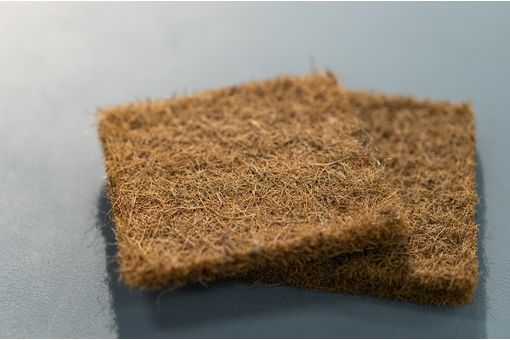Interviews
Govt doubles cash incentive for primary textile sector
24 Sep '11
4 min read
In order to support the Tk 300 billion primary textile industry in the country, the Bangladesh Government has doubled the cash incentive for the functional mills from the current five percent to 10 percent for rest of the fiscal year 2011-12.
Bangladesh's primary textile industry has been badly hit by declining sales during the past few months due to fluctuations in the international cotton prices and the European Union (EU) relaxing its import rules.
The Ministry of Finance's latest decision would increase the burden on public exchequer during the current fiscal by around seven billion Tk.
Besides raising the cash incentives, the Ministry directed the Bangladesh Bank (BB) to transform the ailing textile units' short-term loans into long term debt obligations, to save the textile units from turning defaulters.
The decision of increasing the cash incentives, which has been made applicable from July 2011 onwards, would benefit the spinning as well as weaving textile units under the Bangladesh Textile Mills Association (BTMA).
However, the benefit would also be made available to the BTMA members who procured cotton at higher prices during August 2010 to March this year.
As per the Ministry order, any decision as to whether the textile mill owners have paid higher prices to procure cotton would be taken based on their six month's average purchase price since August 2010.
The Government's move of raising the subsidy amount in a protective manner has been appreciated by the textile millers as well as the BTMA leaders. Earlier they had placed a demand for a 15 percent subsidy, terming it as their sustenance support against external threats.
As stated by the textile millers and the BTMA members, absence of markets for selling products, may lead to a collapse of the primary textile sector of the country, as they may end-up accumulating large amount of stocks worth around Tk 60 to Tk 70 billion.
Owing to their capital intensive nature, the domestic textile firms involving large scale investment in domestic as well as foreign currencies are now finding it difficult to find markets to sell their products even at a price much below their production cost. This is mainly because of a crash in international cotton prices as these mills had procured cotton from international markets by paying higher sums.
Moreover, EU's move of easing its import regulations since January 2011 has also affected these textile units, as it has allowed a duty-free access to the Bangladeshi garment producers to ship their goods to the 27 nation bloc even if these goods are not made from domestically produced yarn.
Earlier, the domestic textile mills enjoyed a guarded local market as the old EU rules required the garment producers to procure fabric and yarn from domestic market to avail duty-free access to the EU markets.
The primary textile industry of Bangladesh comprises ofweaving, spinning, dyeing, printing and finishing. Until now, the industry had been playing a vital role as a backward linkage industry for knitwear and garment industries by supplying the yarn and fabric requirements of the units in these industries.
Bangladesh's primary textile industry has been badly hit by declining sales during the past few months due to fluctuations in the international cotton prices and the European Union (EU) relaxing its import rules.
The Ministry of Finance's latest decision would increase the burden on public exchequer during the current fiscal by around seven billion Tk.
Besides raising the cash incentives, the Ministry directed the Bangladesh Bank (BB) to transform the ailing textile units' short-term loans into long term debt obligations, to save the textile units from turning defaulters.
The decision of increasing the cash incentives, which has been made applicable from July 2011 onwards, would benefit the spinning as well as weaving textile units under the Bangladesh Textile Mills Association (BTMA).
However, the benefit would also be made available to the BTMA members who procured cotton at higher prices during August 2010 to March this year.
As per the Ministry order, any decision as to whether the textile mill owners have paid higher prices to procure cotton would be taken based on their six month's average purchase price since August 2010.
The Government's move of raising the subsidy amount in a protective manner has been appreciated by the textile millers as well as the BTMA leaders. Earlier they had placed a demand for a 15 percent subsidy, terming it as their sustenance support against external threats.
As stated by the textile millers and the BTMA members, absence of markets for selling products, may lead to a collapse of the primary textile sector of the country, as they may end-up accumulating large amount of stocks worth around Tk 60 to Tk 70 billion.
Owing to their capital intensive nature, the domestic textile firms involving large scale investment in domestic as well as foreign currencies are now finding it difficult to find markets to sell their products even at a price much below their production cost. This is mainly because of a crash in international cotton prices as these mills had procured cotton from international markets by paying higher sums.
Moreover, EU's move of easing its import regulations since January 2011 has also affected these textile units, as it has allowed a duty-free access to the Bangladeshi garment producers to ship their goods to the 27 nation bloc even if these goods are not made from domestically produced yarn.
Earlier, the domestic textile mills enjoyed a guarded local market as the old EU rules required the garment producers to procure fabric and yarn from domestic market to avail duty-free access to the EU markets.
The primary textile industry of Bangladesh comprises ofweaving, spinning, dyeing, printing and finishing. Until now, the industry had been playing a vital role as a backward linkage industry for knitwear and garment industries by supplying the yarn and fabric requirements of the units in these industries.
Popular News
Leave your Comments
Editor’s Pick
































-Ltd..jpg?tr=w-120,h-60,c-at_max,cm-pad_resize,bg-ffffff)





.jpg?tr=w-120,h-60,c-at_max,cm-pad_resize,bg-ffffff)
.jpg?tr=w-120,h-60,c-at_max,cm-pad_resize,bg-ffffff)






